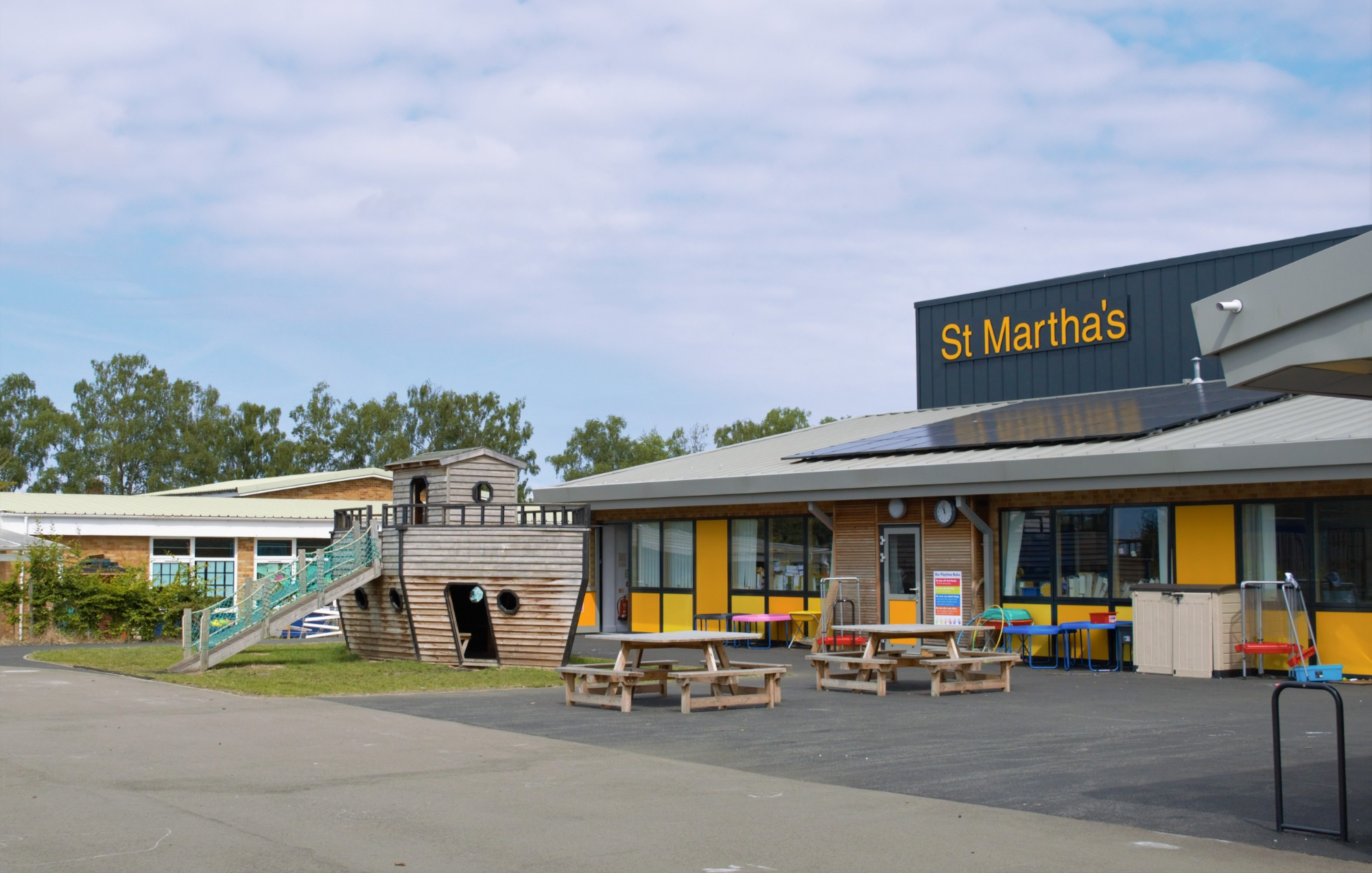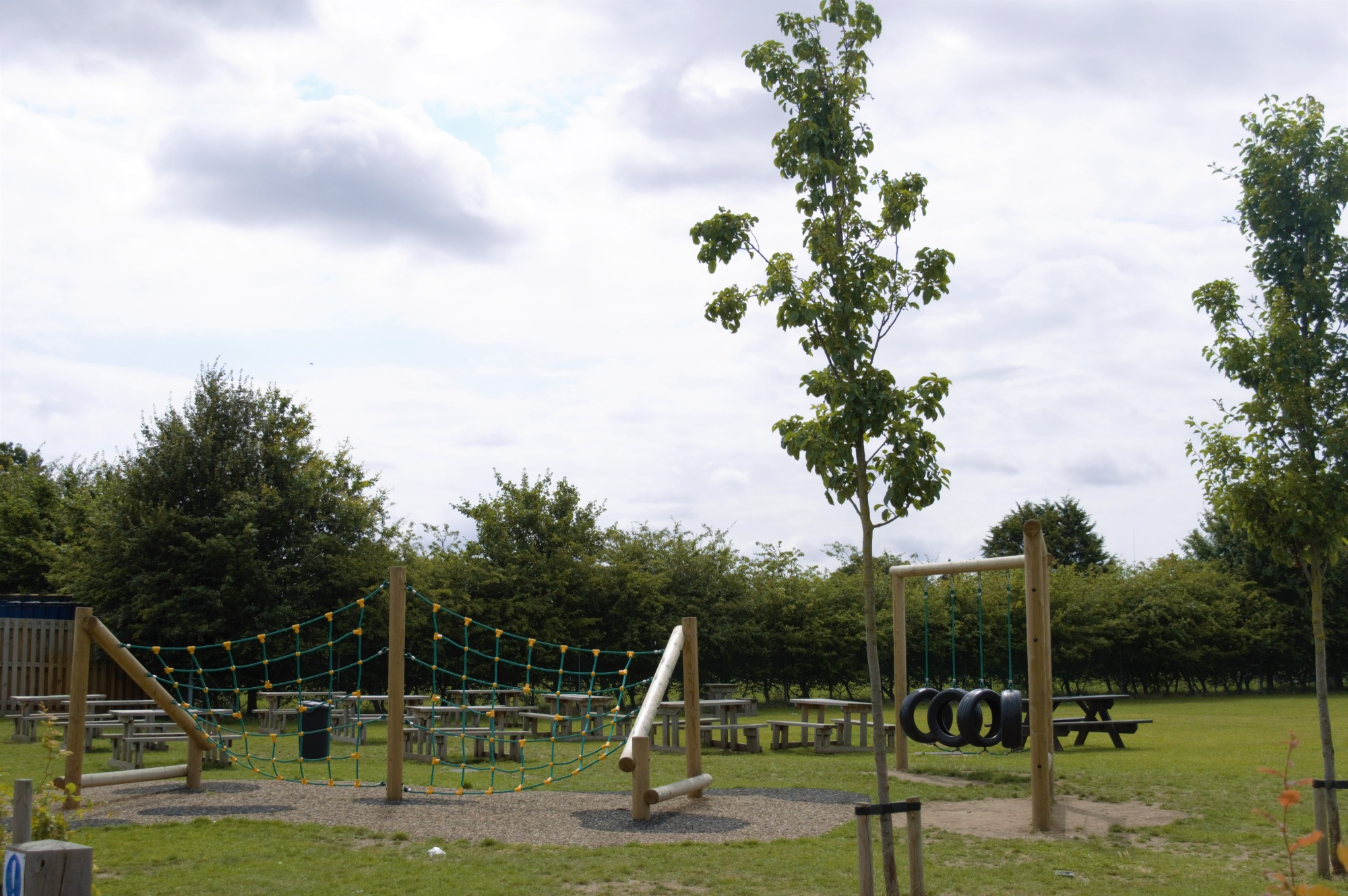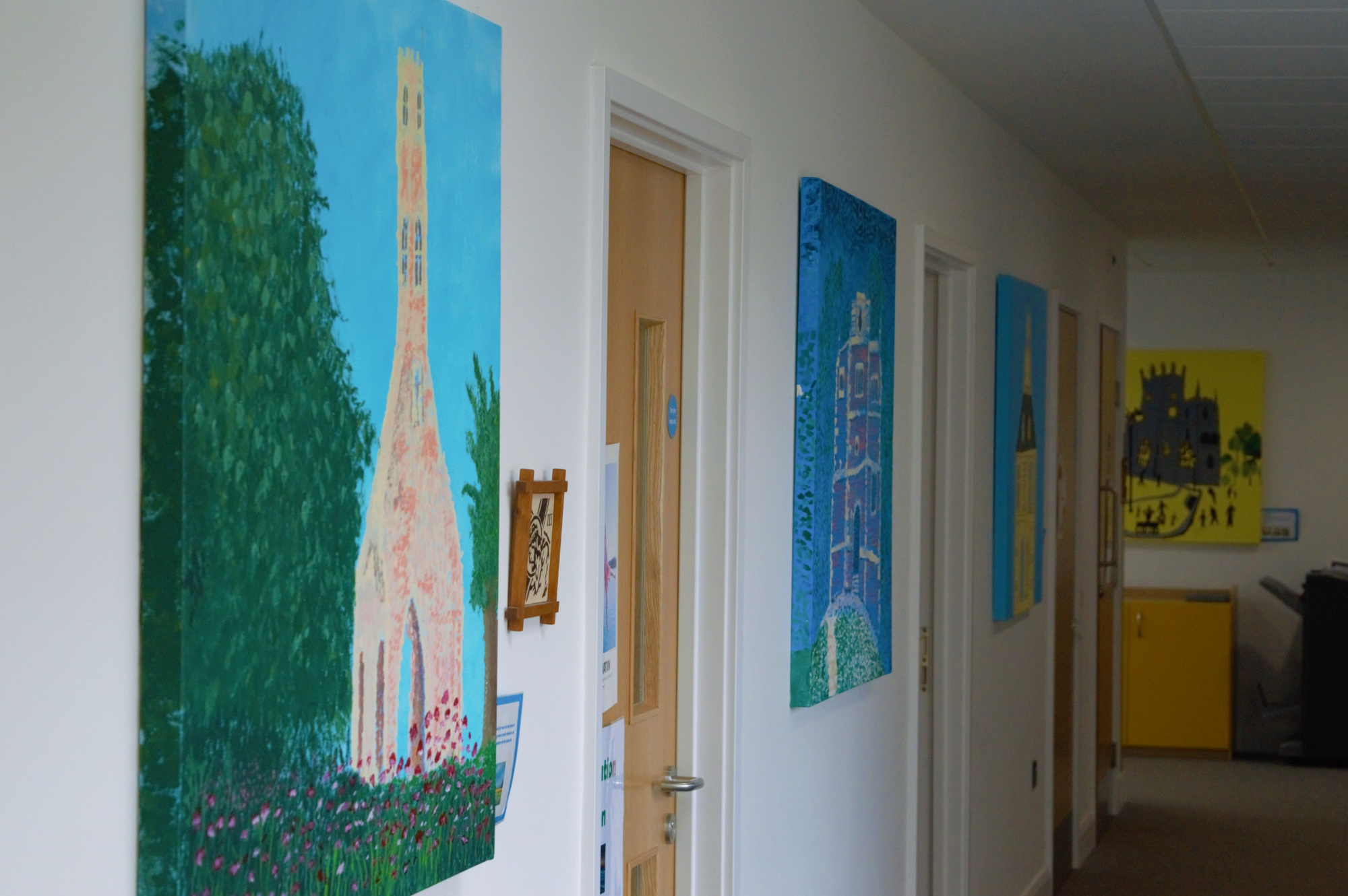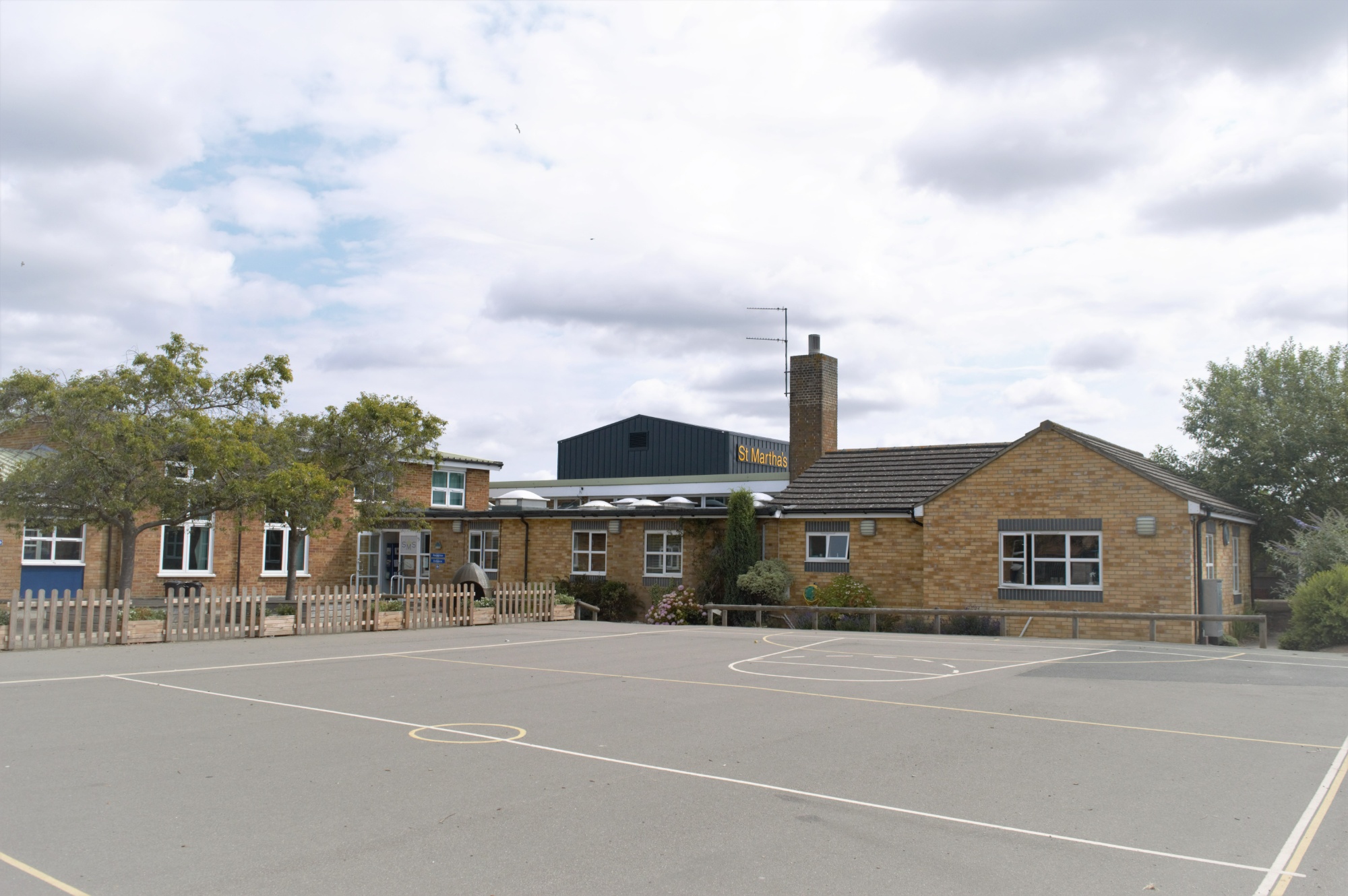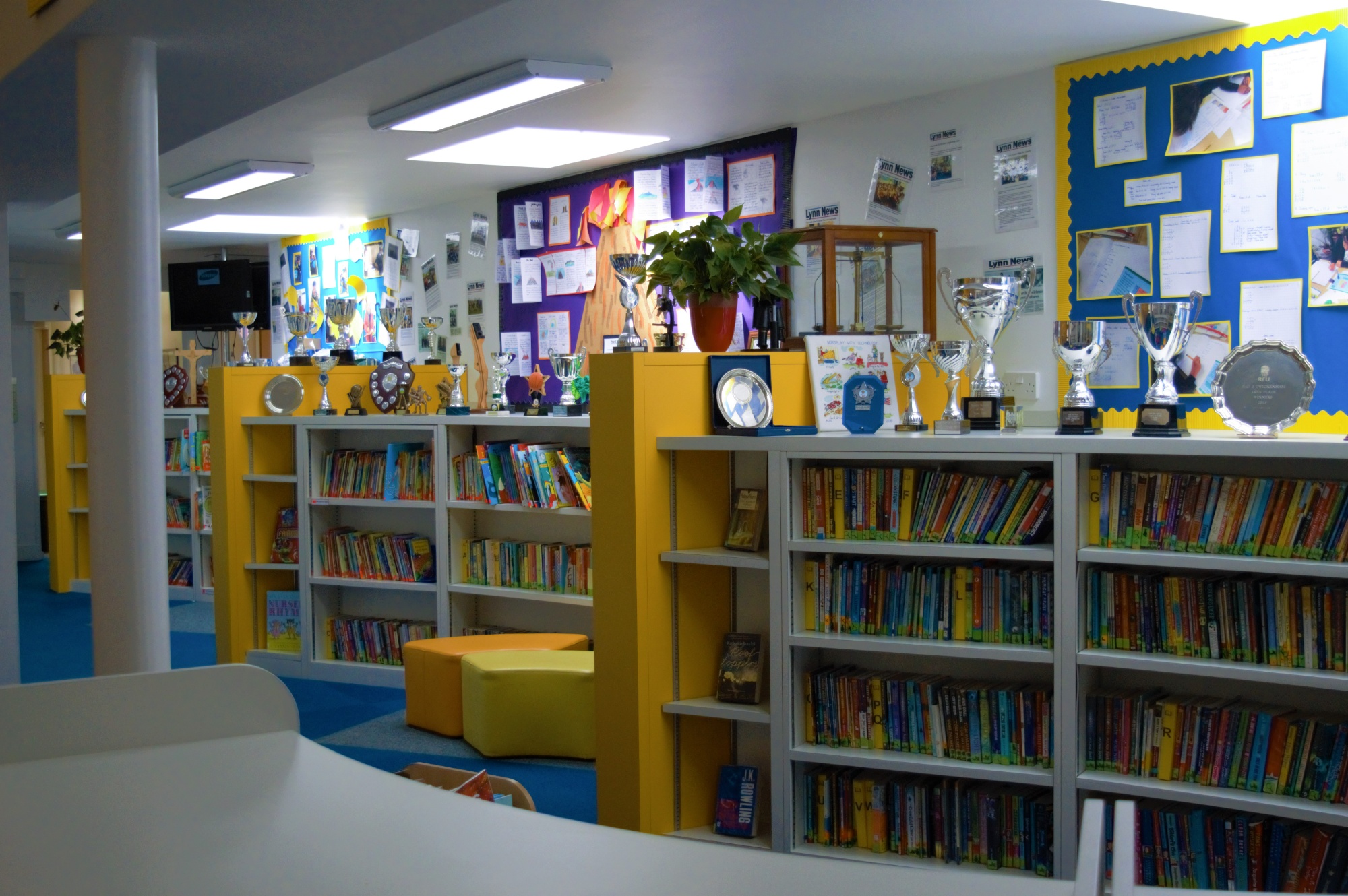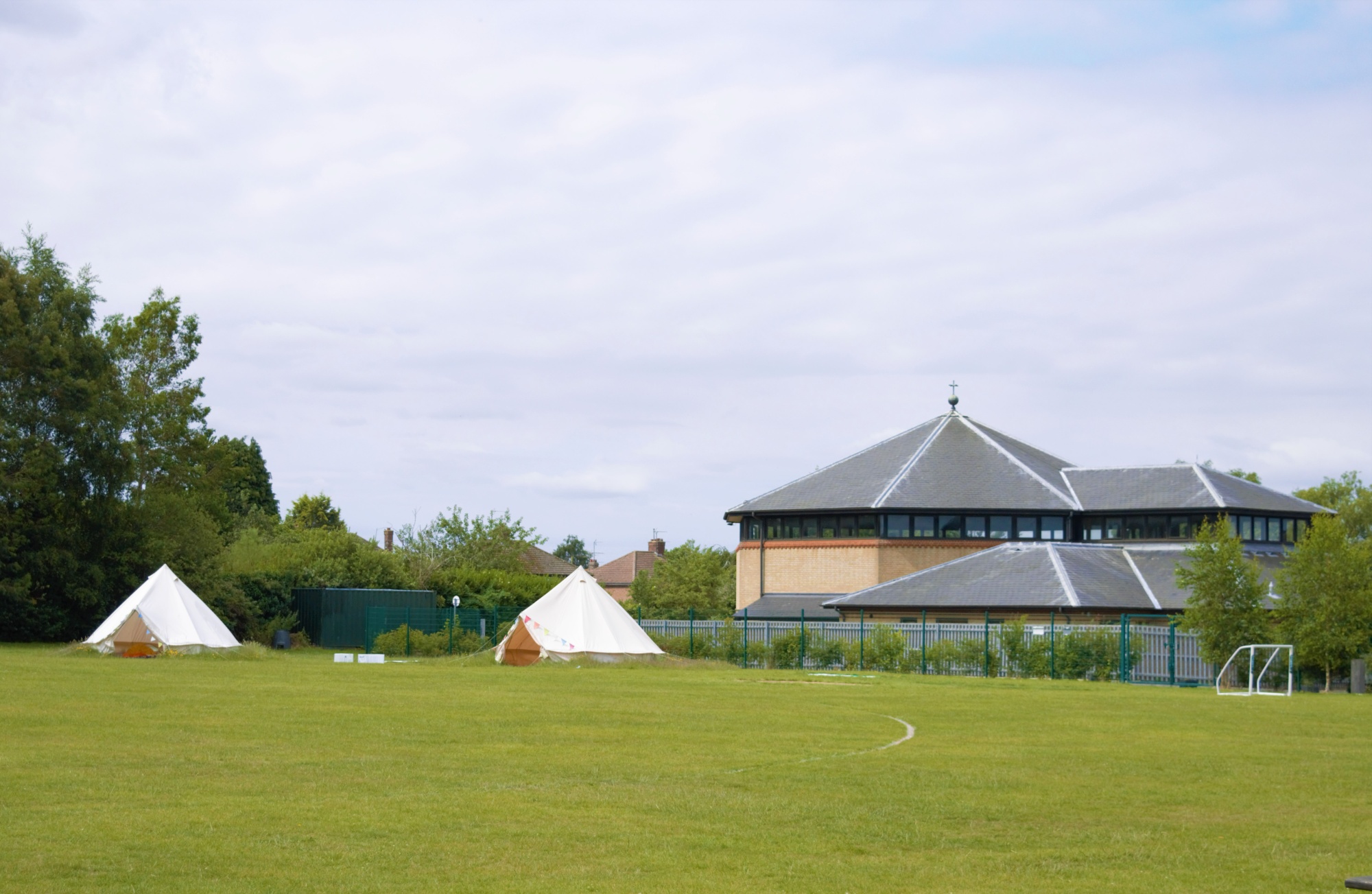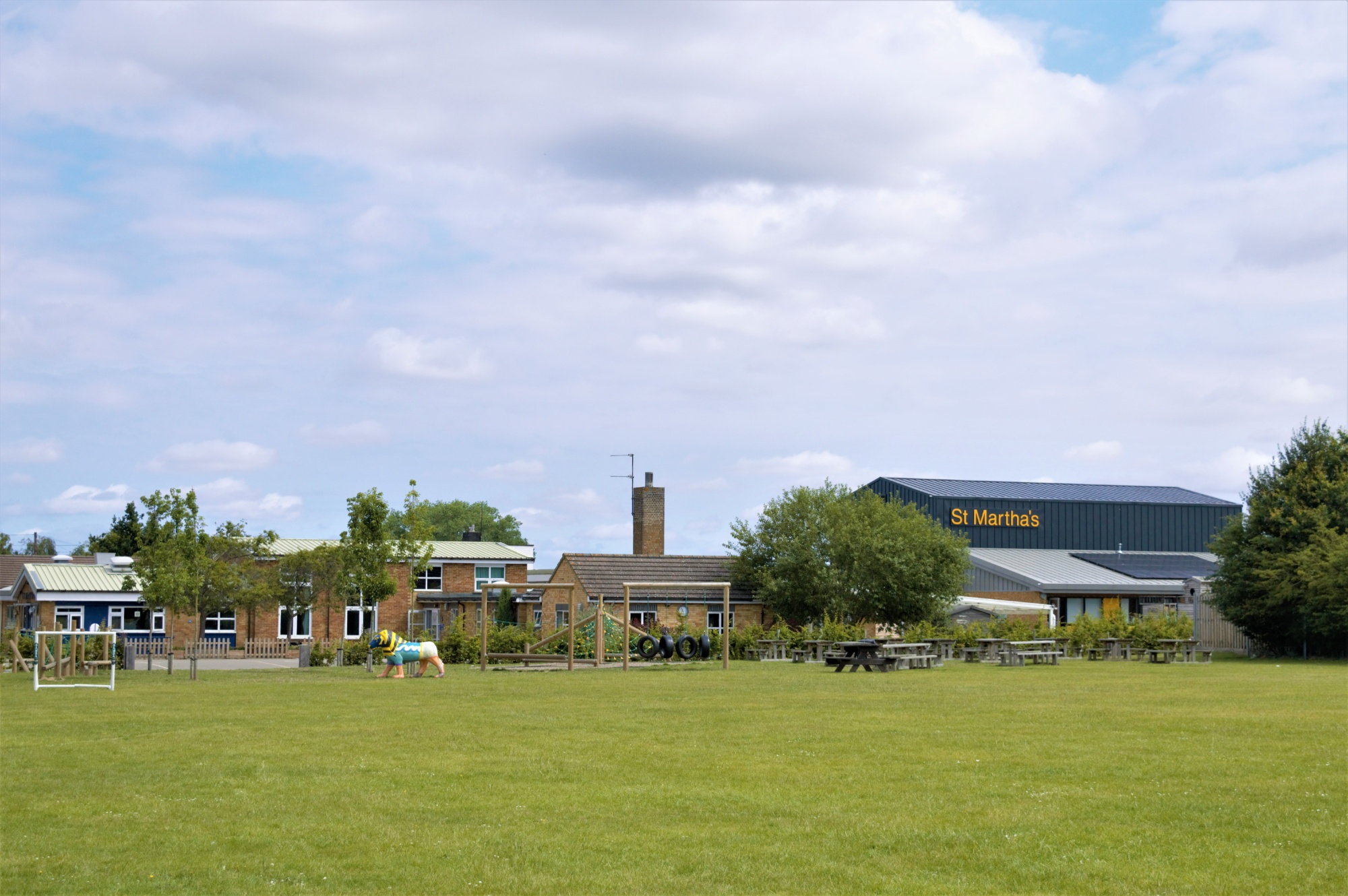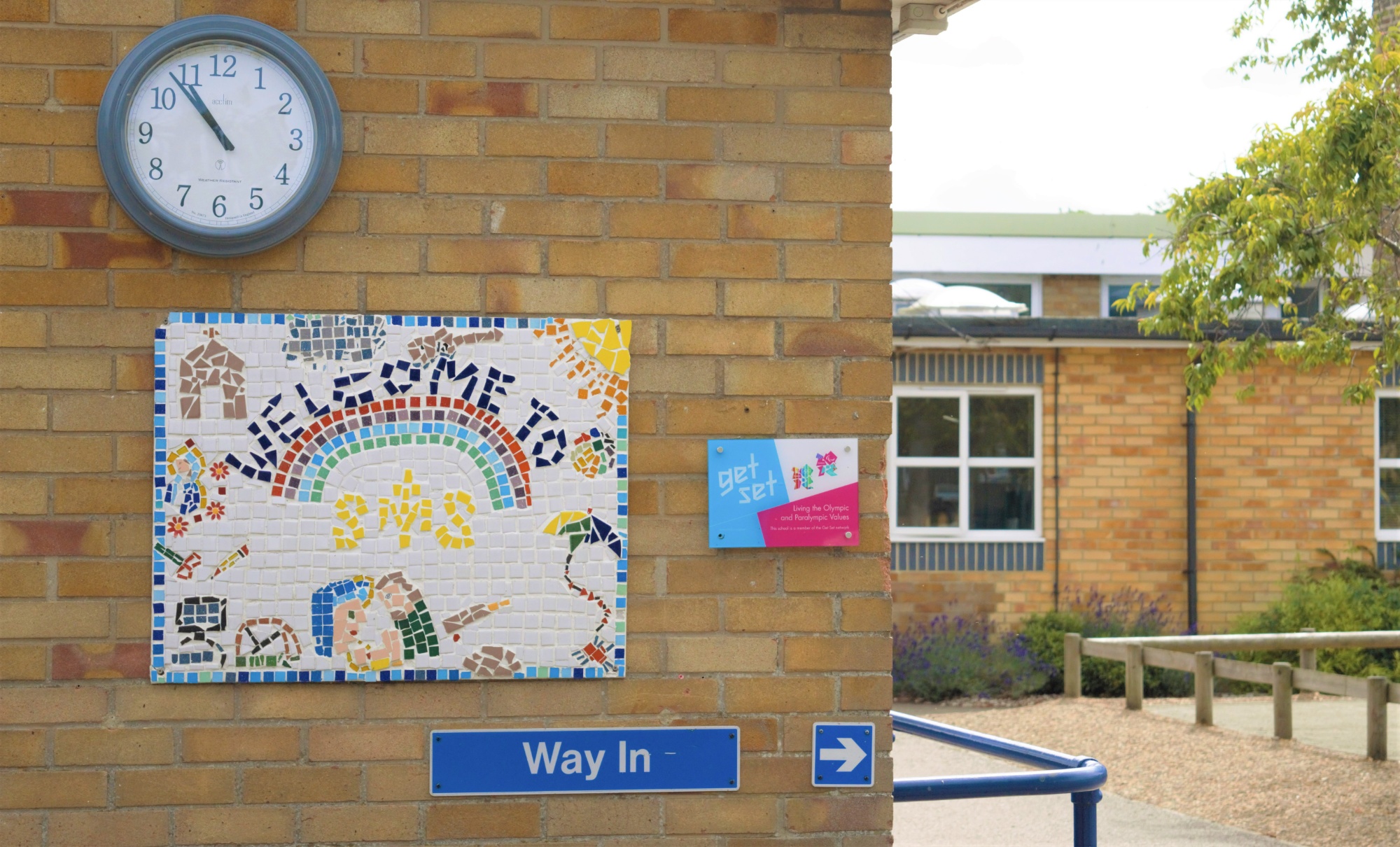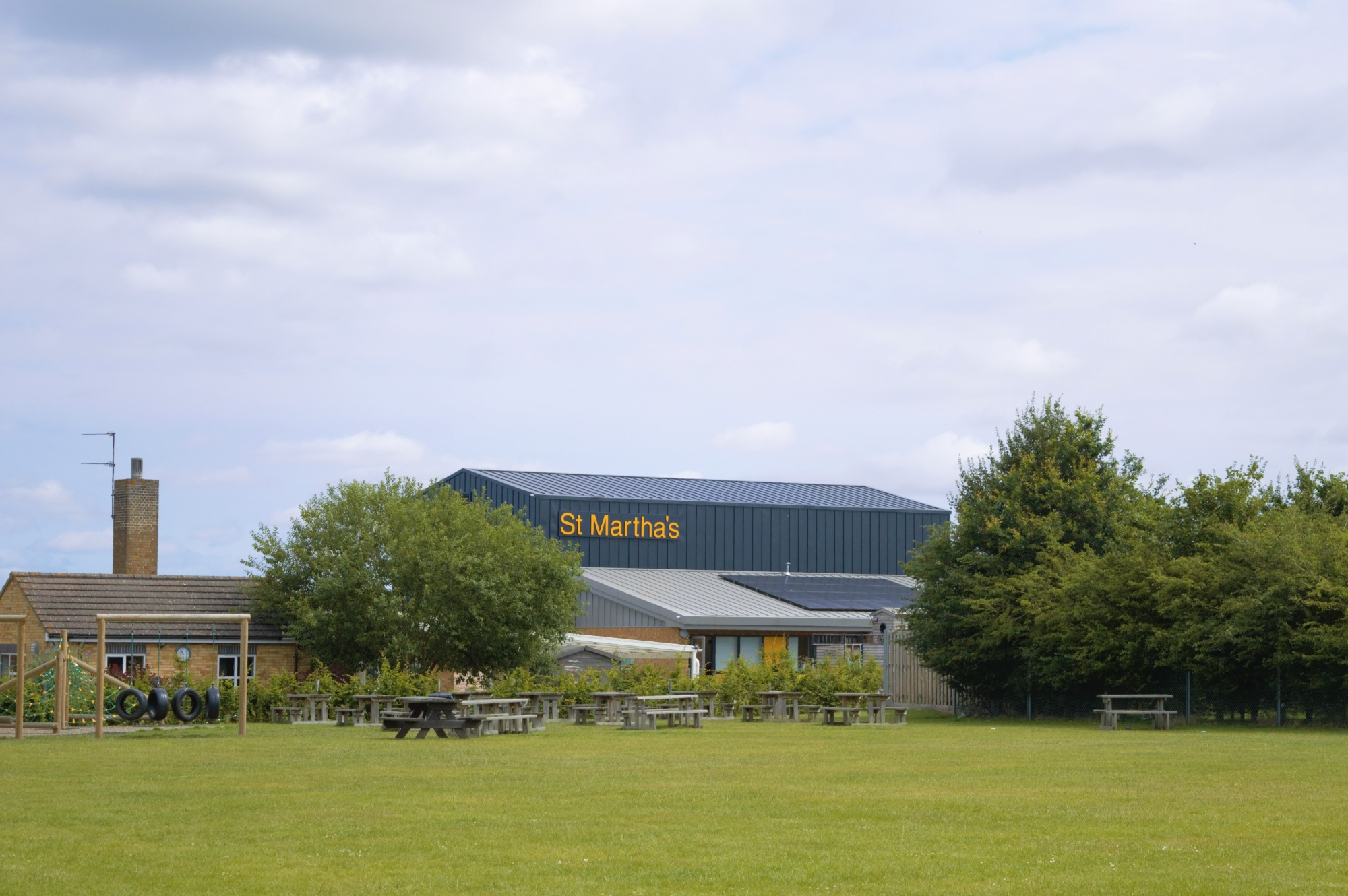Policies and documents
St John the Baptist-CMAT-Policies
At St Martha's Catholic Primary School we follow our Multi Academy Trust, St John the Baptist for several of our policies.
If you are a parent of a child with Special Educational Needs, our complaints procedure can be found in our SEN information report.
School Improvement Development Plan - SIDP
Admissions Policy
Find attached our Admissions Policy.
Accessibility Plan
Behaviour Policy
Below you can find the latest copy of our Behaviour policy.
Reviewed: October 2024
Next Review: October 2025
British Values
Our vision is to create a community based on Catholic faith and values where every child is empowered to be the best he or she can be, nurtured by outstanding teachers, staff and governors
Promoting British Values Statement
The DFE have reinforced the need “to create and enforce a clear and rigorous expectation on all schools to promote the fundamental British values of democracy, rule of law, individual liberty and mutual respect and tolerance of those with different faiths and beliefs.” At St Martha’s Catholic Primary School these values are reinforced in the following ways:
Democracy:
Democracy is richly embedded within St Martha’s. Children have the opportunity to have their voices heard through our Circle time / Greatness sessions, through The School Council, through Public Speaking, during School Assemblies and in Class through hot seating question and answer sessions . The School ethos encourages positive behaviour and good manners and respect throughout the school.
The Rule of Law:
Children are taught the value and reasons behind laws and rules, i.e class and school rules, that they govern and protect us, the responsibility this involves and the consequences when rules and laws are broken. Visits from the Police, Fire Service are a regular part of our calendar events and help to reinforce this message.
Individual Liberty:
At St Martha’s pupils are actively encouraged to make choices, knowing that they are in a safe and supportive environment. Opportunities are provided for the children to express their preferences through voting for the School Council and other roles within the school. We educate children to make informed choices empowering them to make informed decisions. Children are encouraged to know, understand and exercise their personal freedoms and how to employ them safely through e-safety and PSHE lessons.
Mutual Respect:
The respect of self and others is fundamental to our core values and ethos. Children take part in discussions and collective worship which emphasise respect for all and this message is reinforced through our daily interactions. Adults and children model respect for each other, age related tasks and responsibilities are integral to supporting this message.
Tolerance of those with different faiths and beliefs:
At St Martha’s we are blessed with a culturally rich & diverse school community which provides us with unique opportunities to learn from and celebrate each other’s differences.
Charging and Remissions Policy
1. Introduction
St Martha’s Catholic primary school makes no charge for education provided for a pupil during school time, as required under the Education reform Act 1998.
2. Voluntary contributions
When organising school trips or visits which enrich the curriculum and educational experience of the children, the school invites parents to contribute to the cost of the trip. All contributions are voluntary. If we do not receive sufficient voluntary contributions, we may cancel a trip. If a trip goes ahead, it may include children whose parents have not paid any contribution. We do not treat these children differently from any others. The Governing Body has determined to adopt the LA’s advice on charging and remissions and will ensure that any letter associated with trips and visits makes it clear that any cost is a voluntary contribution and that no parent is obliged to contribute. Also that no pupil will be excluded or treated differently according to whether or not a contribution has been received from his/her parent/carer.
If a parent wishes their child to take part in a school trip or event, but is unwilling or unable to make a voluntary contribution, we do allow the child to participate fully in the trip or activity. Sometimes the school pays additional costs in order to support the visit. Parents have a right to know how each trip is funded. The school provides this information on request. The following is a list of additional activities that may be organised by the school, which require voluntary contributions from parents. These activities are known as ‘optional extras’. This list is not exhaustive:
- visits to museums and other places of educational value;
- sporting activities which require transport expenses;
- outdoor adventure activities;
- visits to the theatre;
- school trips abroad;
- musical events.
If there is a surplus for any single activity of more than £5, the governors will offer parents the opportunity to request a refund. Any funds below this amount will be added to the School Fund account for further educational purposes.
- The full contribution to a trip will be refunded if a child is absent due to illness.
- If a trip has to be cancelled parental contributions will be refunded.
- If contributions to a trip exceed the total cost a refund will be given, if excess is over £5 per child.
- Excess income less than £5 per child will be paid into school fund account.
- Excess of expenditure will be funded by school
3. Residential visits
When the school organises a residential visit in school time or mainly school time, which is to provide education directly related to the National Curriculum, a voluntary contribution is asked for towards travel expenses and the cost of museum visits etc. whilst on the trip. However, we do make a charge to cover the costs of board and lodging. Parents who receive state benefits (as outlined in the attached guidance,page 4) are exempt.
4. Subsidies
Where appropriate, the school may approach the Parish of Holy Family Church or The Friends of St Martha’s for assistance in subsidising the cost of a trip.
5. Music tuition
All children study music as part of the normal school curriculum. We do not charge for this. There is a charge for individual or group music tuition if this is not part of the National Curriculum. The peripatetic music teachers teach individual or small group lessons. At present, a charge is made by the peripatetic teacher/external music lesson providers, for weekly instrumental lessons. Parents in receipt of state benefits are exempt from payment. We give parents information about additional music tuition at the start of each academic year.
6. Swimming
The school organises swimming lessons for all children in Key Stage 2. These take place in school time and are part of the National Curriculum. We make no charge for this activity. We inform parents when these lessons are to take place, and we ask parents for their written permission for their child to take part in swimming lessons.
7. Lettings
The Governors of St Martha’s have decided to let the school premises in line with the current Lettings policy. There may be occasions when local voluntary or charity groups may wish to use the premises for activities, fund-raising etc. On these occasions, the governors will leave it to the headteacher’s discretion.
Reviewed: September 2024
Next Review: September 2025
Equality Policy
At St Martha's we follow St John the Baptist CMAT for many of our policies. You can find a link below that will direct you to their policies.
Equality
Equality Information and Objectives
Public Sector Equality Duty
(The following information should be read in conjunction with the CMAT Equality & Diversity Policy)
Public Sector Equality Duty
We welcome our duties under the Equality Act 2010 to publish information that demonstrates that we have due regard to the need to eliminate discrimination, advance equality of opportunity and foster good relations in relation to age (as appropriate), disability, ethnicity, gender (including issues of transgender, and of maternity and pregnancy), religion and belief and sexual identity.
We welcome our duty under the Education and Inspections Act 2006 to promote community cohesion.
We recognise that these duties reflect international human rights standards as expressed in the UN Convention on the Rights of the Child, the UN Convention on the Rights of People with Disabilities, and the Human Rights Act 1998.
St Martha's Catholic Primary School is an inclusive school. We value every member of the community within a caring and supportive environment and is deeply committed to the principles of equality.
We promote positive and respectful relationships and encourage everyone to actively contribute to ensuring equality of opportunity in all aspects of school life, by the daily living out of Gospel values.
Through our policies and practices we strive to eliminate all forms of discrimination that may prevent pupils or staff form achieving their full potential.
We believe that the Equality Act provides a framework to support our strong commitment to valuing diversity, tackling discrimination, promoting equality and fostering good relationships between people. It also ensures that we continue to tackle issues of disadvantage and underachievement of different groups.
Teaching and Learning Policy
Our Teaching and Learning Policy outlines how we plan and teach our curriculum across the school.
Medicine Policy
Find attached our policy for the procedure for administration of medicine at St Martha's.
RSHE Policy
Find attached our policy for the teaching of RSHE at St Martha's.
Whole School Policy for Safeguarding
|
Role |
Name |
Contact Details |
|---|---|---|
|
Designated Safeguarding Lead (DSL) |
Lucy Child Deputy DSL: Rachel Edwards, Mairead Annely, Helen Bowman |
01553 774829 |
|
Headteacher |
Mrs R Edwards |
01553 774829 |
|
Named Safeguarding Governor |
Lisa Austin |
01553 774829 |
|
Chair of Governors |
Deacon Shaun Morrison |
01553 774829 |
Home Learning Policy
By following the link below you can find a copy of our Home Learning Policy for Reception to Year 6.
Intimate Care Policy
Marking and Feedback Policy
Prayer and Liturgy Policy
EYFS Policy

